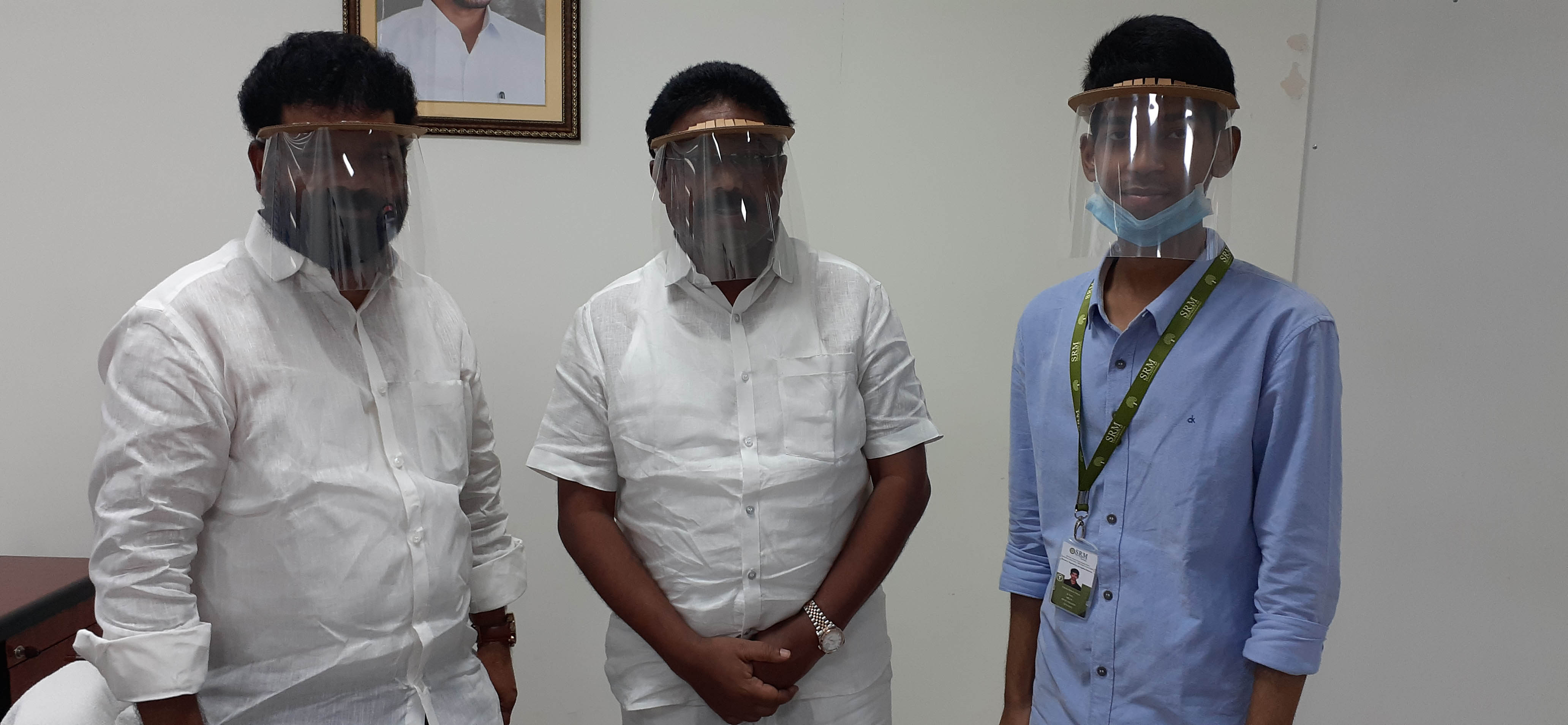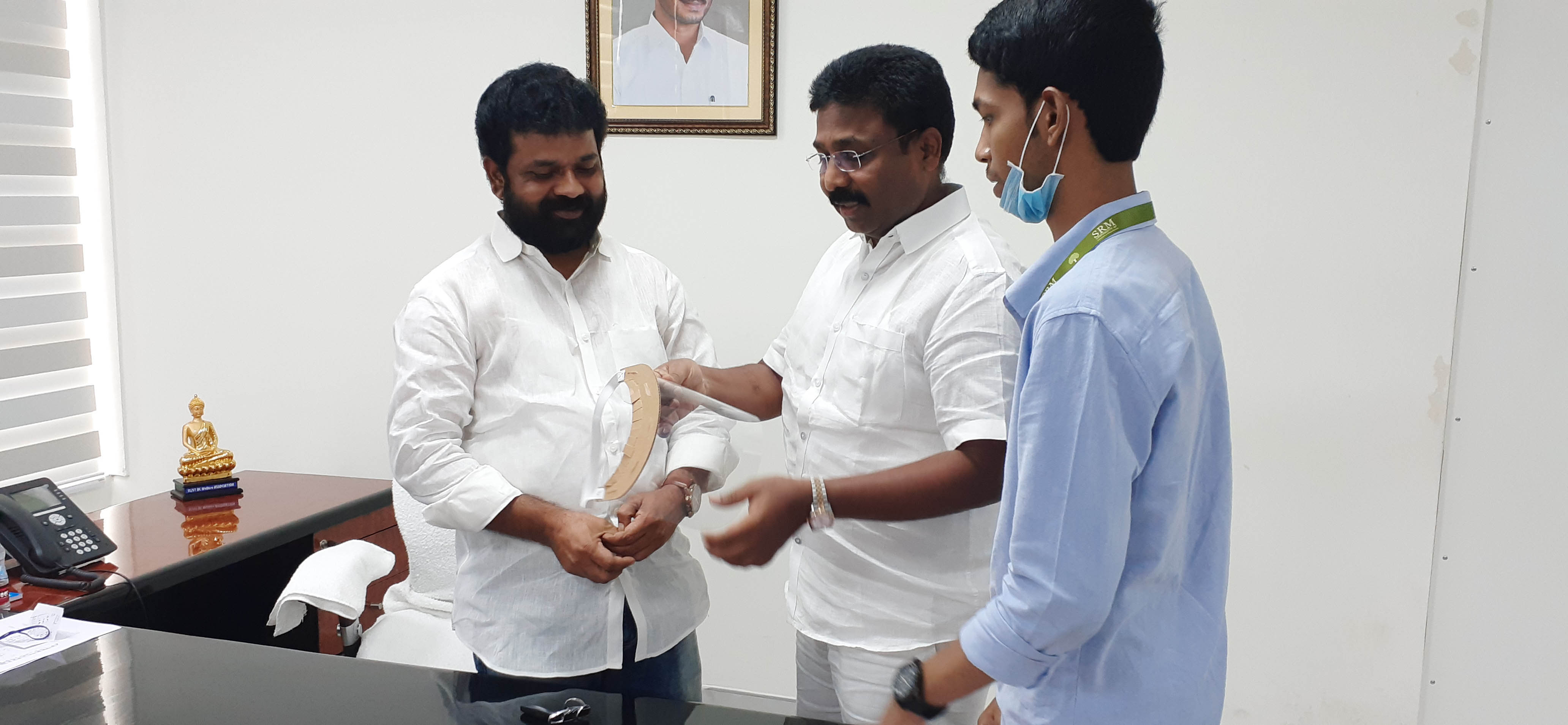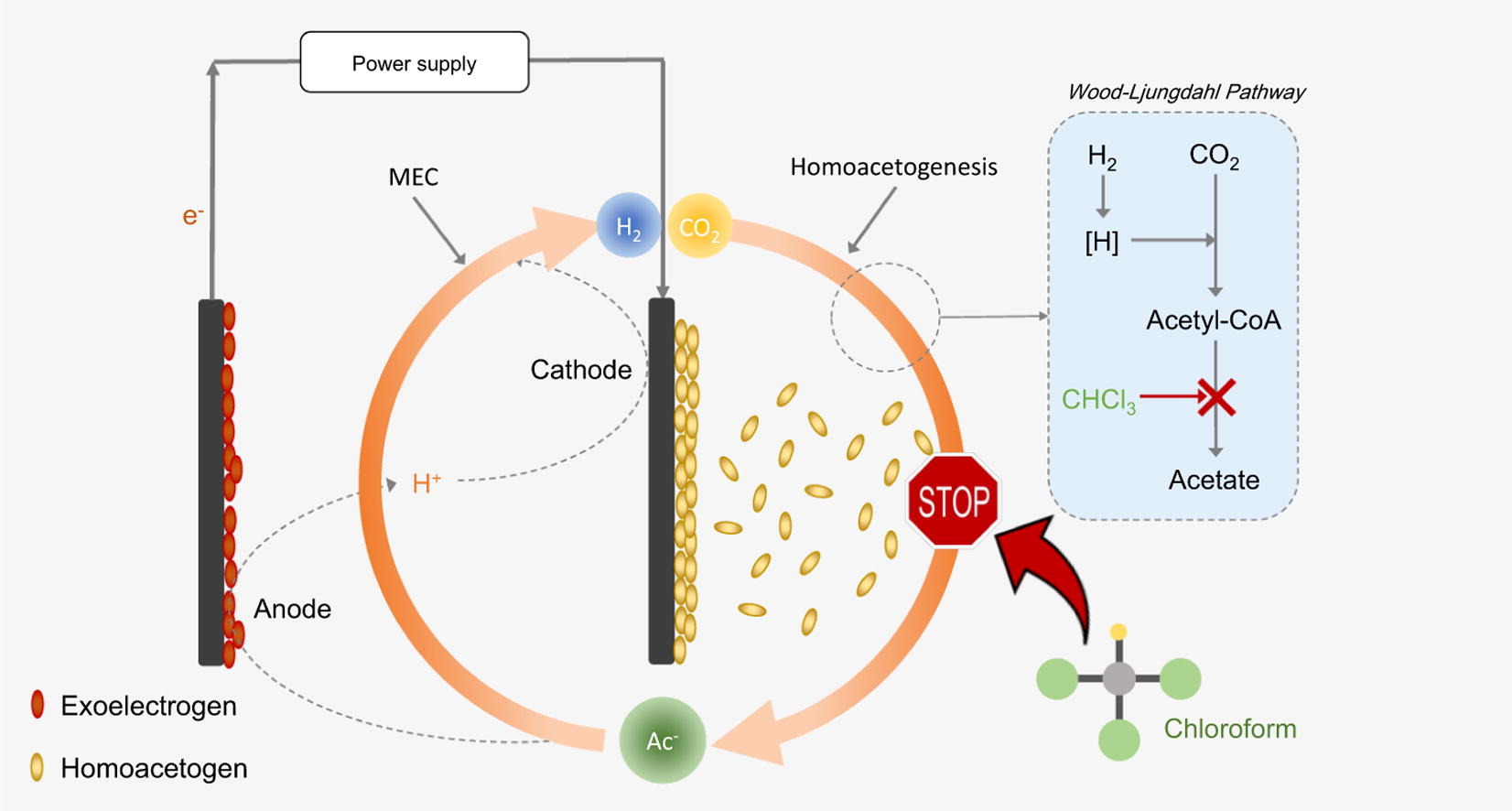Next Tech Lab student excels at ETH Denver Hackathon 2020
Enabling accurate and cost-efficient ways to conduct a market survey
 SRM University AP, Andhra Pradesh Next Tech Lab student churns out the opportunity to exhibit her acumen at ETHDenver Hackathon 2020. Vyshnavi G, 3rd year, Computer Science and Engineering student, nurtures her coding skills, and emerged triumphant by winning the ETH Denver Hackathon 2020. This hackathon focuses on supporting and building the future technology. The hackathon was conducted at Denver with 500 participants. Vyshnavi G also received a bounty of $500 from SKALE and $500 from Chainlink for the project. The project provides value to Dapp creators by improving understanding of their position and deploying inexpensive ways to gather competitive intel. This application ensures security and is developed using blockchain technology.
SRM University AP, Andhra Pradesh Next Tech Lab student churns out the opportunity to exhibit her acumen at ETHDenver Hackathon 2020. Vyshnavi G, 3rd year, Computer Science and Engineering student, nurtures her coding skills, and emerged triumphant by winning the ETH Denver Hackathon 2020. This hackathon focuses on supporting and building the future technology. The hackathon was conducted at Denver with 500 participants. Vyshnavi G also received a bounty of $500 from SKALE and $500 from Chainlink for the project. The project provides value to Dapp creators by improving understanding of their position and deploying inexpensive ways to gather competitive intel. This application ensures security and is developed using blockchain technology.
Vyshnavi G explains, “A Dapp stores data in a decentralized database and uses decentralized computing resources to work. In a trustless environment, the user needs to be able to verify the kind of application and its working to prevent scam and malware, as well as to protect personal data and assets. Therefore, companies such as Chainlink and Skale that uses blockchain technology, provided the user analytics of their Dapp and expected participants to generate ideas to improve the companies’ market strategy. Our application collects information about the users, and the application can be implemented by any Dapp creator in every industry, be it gaming, exchanges etc.”
The project of Vyshnavi G provides Dapp creators with important metrics about their users. It gives information regarding the time spent by users on competitors’ app, contacts that the users are interacting with, count of unique users, and the count of loyal users of the competitors. “There are many Dapps in the market which offers the information about the user analytics of Dapp. However, they restrict to presenting data pertaining to a single industry whereas, our app mitigates this limitation by offering data source to be used by multiple industries.”, Vyshnavi G explains the uniqueness of the project. When asked regarding her take away from the Hackathon, Vyshnavi G says, “ The ETH Denver Hackathon 2020 gives a brilliant opportunity to work alongside the developers, thought leaders, advisers, and companies who are making the infrastructure and applications that will empower the industries in the future.”
- Published in News
AP Ministers unveiled Face Shield 2.0 developed by SRM AP student Mohan Aditya
 Aditya with Education Minister and MP of Andhra Pradesh Attesting the signs of a true researcher, SRM University AP student P. Mohan Aditya, 2nd year, Mechanical Engineering, develops a highly useful face shield that costs Rs. 15 per piece. “Face Shield 2.0”, as named by Aditya was unveiled at the Velagapudi Secretariat on Tuesday evening, where the student was seen wearing the Face Shield and preparing them. The Sophisticated Corona Face Shield was handed over to Adimulapu Suresh, the Minister of Education, Andhra Pradesh, and Nandigam Suresh, Member of Parliament from Bapatla district of Andhra Pradesh, who may eventually distribute it to the public. The masks were circulated among the police and paramedics from the government, who appreciated Mohan Aditya for this initiative.
Aditya with Education Minister and MP of Andhra Pradesh Attesting the signs of a true researcher, SRM University AP student P. Mohan Aditya, 2nd year, Mechanical Engineering, develops a highly useful face shield that costs Rs. 15 per piece. “Face Shield 2.0”, as named by Aditya was unveiled at the Velagapudi Secretariat on Tuesday evening, where the student was seen wearing the Face Shield and preparing them. The Sophisticated Corona Face Shield was handed over to Adimulapu Suresh, the Minister of Education, Andhra Pradesh, and Nandigam Suresh, Member of Parliament from Bapatla district of Andhra Pradesh, who may eventually distribute it to the public. The masks were circulated among the police and paramedics from the government, who appreciated Mohan Aditya for this initiative.
Aditya with MinistersThe lightweight face shield is easy to wear, comfortable, yet durable. It protects a person’s entire face from exposures with a thin layer of transparent plastic film that serves as an outer defence. It is a piece of protective equipment that safeguards the face against exposure to the potent threat of infection and diseases. The headband of the face shield is made of cardboard which is 100% degradable and the plastic shield can be reused, making the product eco-friendly.
 AP Ministers inspecting Face Shield 2.0
AP Ministers inspecting Face Shield 2.0
Wearing the ‘Face Shield 2.0’ will help reduce the threat of Coronavirus, making it easier for the police, medical personnel, municipal workers, people working in sanitizing department, people working in the essential goods sector to serve the nation’s public. It can also be used by virus-infected patients to reduce the plausibility of spreading the virus. Moreover, several lakhs of students of schools, colleges and universities could use the Face Shield 2.0 when they come back to the educational institutions after the lockdown is lifted.
The management of SRM AP applauded the research work of Mohan Aditya, praising his new and inspiring invention that is useful to the society. Dr. P Sathyanarayanan, President, SRM University-AP, and Prof. D Narayana Rao, Pro Vice Chancellor, SRM University-AP, celebrated the commendable intelligence of the student and congratulated him for developing the face shield using new technology.
- Published in News
SRM AP students’ illustrious achievements at LA Hacks 2020
 Amid the unparalleled catastrophe in the form of widespread COVID-19, SRM University AP, Andhra Pradesh, students at Semester Abroad Program develop projects to combat the crisis. Vyshnavi G and Padmateja, 3rd year, Computer Science and Engineering students went to University of Wisconsin, Madison, and University of California, Berkeley respectively for their Semester Abroad Program. During their stay, they presented two projects at LA Hacks 2020, Southern California, and won accolades galore. The hackathon is one of the largest in the world and was held on March 27-29. Many hackers and innovators participated to create and collaborate at UCLA’s virtual event. SRM AP students submitted two projects in this hackathon as a single team and emerged as a finalist in the “Best Overall Hack”. The students developed Safely, the project title sponsored by Facebook as “Best Collaboration Hack”, and also worked on Go Farm which was sponsored by Honey as “Best Consumer Hack”. The team coordinated through Slack as the hackathon was turned into a virtual competition with the unfortunate outbreak of COVID-19.
Amid the unparalleled catastrophe in the form of widespread COVID-19, SRM University AP, Andhra Pradesh, students at Semester Abroad Program develop projects to combat the crisis. Vyshnavi G and Padmateja, 3rd year, Computer Science and Engineering students went to University of Wisconsin, Madison, and University of California, Berkeley respectively for their Semester Abroad Program. During their stay, they presented two projects at LA Hacks 2020, Southern California, and won accolades galore. The hackathon is one of the largest in the world and was held on March 27-29. Many hackers and innovators participated to create and collaborate at UCLA’s virtual event. SRM AP students submitted two projects in this hackathon as a single team and emerged as a finalist in the “Best Overall Hack”. The students developed Safely, the project title sponsored by Facebook as “Best Collaboration Hack”, and also worked on Go Farm which was sponsored by Honey as “Best Consumer Hack”. The team coordinated through Slack as the hackathon was turned into a virtual competition with the unfortunate outbreak of COVID-19.
Safely is a society-based pandemic monitoring application for reporting and tracking precise geolocations of COVID-19 cases. Safely allows users to report their own condition, be it healthy, symptomatic, diagnosed, or recovered along with their geolocation. The application enables users to identify areas around them on a map. Based on the shade of the regions displayed on the map, the user deciphers the risk of contagion. Areas with symptomatic users display lighter shades, whereas locations with diagnosed patients and regions with a high concentration of affected users, show up as darker shades on the map. “With COVID-19 spreading rapidly, there are not enough resources to find or report the exact geographical information of new cases. People would want to be cautious by avoiding specific locations that have a lot of reported cases. Also, it enables help agencies to recognize areas where resources are required to be sent. Tracking COVID-19 can be especially difficult in developing countries with weaker infrastructure. “, Vyshnavi G explains the issues that inspired her to build this project.
GoFarm primarily benefits the farmers and improves consumer satisfaction. It is an application where a farmer can post information regarding harvested crops including vegetables, pulses along with quoting the price of the products. The customer can search for nearby farms using google maps and purchase through this platform. Padmateja says, “In India where agriculture sector employs more than 50% of the total workforce, we have come across many incidents in which farmers are suffering because of high debt burdens, corruption in subsidies, and crop failure. We thought to use our skills to develop an application that gives them profit. Not getting enough money for their crop is the most serious problem that they are facing right now. At the same time, we decided to emphasize on the consumer satisfaction. Eliminating third parties and connecting farmers with customers would be helpful in upgrading the agricultural sector. Due to COVID-19 outbreak, it has become more crucial for the consumers to be informed regarding stores responsible for the delivery of the product.”
In the future, the team wants to add a crop recommendation system for the farmers in the platform based on weather conditions. The students also plan to expand the availability of the application to many farmers and consumers across the nation.
- Published in News
Scaling up hydrogen production: an alternative energy source to conventional fuels
Chemical Engineering Journal publishes paper of Dr. Lakhveer Singh with Impact Factor 8.34
Dr. Lakhveer Singh, Assistant Professor, Department of Environmental Science, SRM University AP, Andhra Pradesh published a paper in the Chemical Engineering Journal with an Impact Factor of 8.34. His paper titled, Breaking the Loop: Tackling Homoacetogenesis by Chloroform to Halt Hydrogen Production-Consumption Loop in Single Chamber Microbial Electrolysis Cells is published in collaboration with Oregon State University.
Single Chamber Microbial Electrochemical Cells reactor is used to produce hydrogen. Since wastewater is used in the process, hydrogen consumers are present inside the reactors. The presence of homo acetogenesis and hydrogen production-consumption loop significantly hinders the efficient hydrogen recovery from this reactor. Removal of homo acetogenins remained a challenge that is mitigated by the research work conducted in this paper. Dr. Lakhveer informs, “Prof. Hong Liu is the mother of the bioelectrochemical system. I used to work with her for 1.5 years during my Post Doctorate. We developed the method to inhibit homo acetogenins in bioelectrochemical fuel cells for the first time to exhibit homo acetogenins which enhance the hydrogen production in scaled-up microbial electrochemical (MEC).”
 Method to inhibit homo acetogenins in bioelectrochemical fuel cells
Method to inhibit homo acetogenins in bioelectrochemical fuel cells
A small concentration of chloroform is used in the process, which after the experiment leaves traces of merely 0.001% which is negligible. Furthermore, 0.02 ml chloroform is used in ten litres of reactors, negating the chance of causing damage to the environment. “Microbial community analysis revealed that the amount ofhomoacetogenic Acetobacterium spp. was eliminated in the cathodic biofilms and planktonic cells by chloroform.”, enlightens Dr. Lakhveer. This method can also be applied in large scale reactors to enhance hydrogen production by inhibiting homo acetogenins. The hydrogen production rate is nearly 20 litres per hour from the reactor. The application of this reactor is the production of energy which can be used as an alternative to conventional fuel.
Advancing the work, Dr. Lakhveer aspires to improve this method in the future, through reducing the residual chloroform concentration and developing more environment-friendly inhibitor using similar mechanisms, that may lead to the practical application in MECs.
- Published in News, Research News


